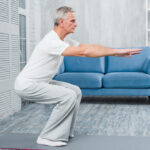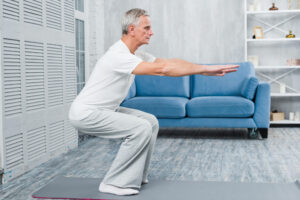Write me a blog post introduction that focuses on the challenges that many people face who struggle with keeping their energy at the highest level during the day, and explain how it can be different if they achieve that.
Relax and unwind after a stressful day
Stress can be a real energy zapper. It’s like a stealthy thief that sneaks in and drains your vitality without you even realizing it. When we’re stressed, our bodies go into ‘fight or flight’ mode, releasing adrenaline and cortisol. While this might give us a temporary energy surge, it’s followed by an energy slump that can leave us feeling exhausted. So, if you’re looking to stay active and energetic all day, one of the key things you need to tackle is your stress levels.
Tips for decreasing stress
Now, let’s talk about some effective ways to kick stress to the curb.
- Meditation: A few minutes of daily meditation can help you achieve a sense of calm and relaxation, reducing stress levels.s.
- Quality Sleep: A good night’s sleep is crucial for stress management. Aim for 7-9 hours of uninterrupted sleep every night.
- Massage and Sauna: There’s nothing like a good massage or a sauna session to help you unwind after a stressful day. Both can help reduce muscle tension, improve circulation, and promote relaxation.
At HiTone Fitness, we understand the impact of stress on your energy levels and overall well-being. That’s why we offer all our members unlimited access to our Hydro Massage Bed and Sauna. So, after a hard workout or a long day at work, you can relax, rejuvenate, and recharge.
Workout regularly
Let’s get one thing straight – regular workouts are a game-changer when it comes to feeling active and energetic. When you exercise, your body releases chemicals known as endorphins. Often referred to as ‘feel-good’ hormones, endorphins interact with the receptors in your brain that reduce your perception of pain and trigger a positive feeling in the body, similar to that of morphine. Not only does regular exercise help you sleep better, but it also aids in managing stress and anxiety. All of these benefits combined can lead to improved mood and energy levels.
Keep it fun and stay consistent
The thought of hitting the gym and lifting weights might not be everyone’s idea of fun. But here’s the thing – exercise doesn’t have to be a chore. In fact, the key to staying consistent (and making the most of those energy-boosting benefits) is to find workouts that you genuinely enjoy.
Maybe that’s a group workout class where you can sweat it out while socializing. Or perhaps you prefer the solitude and simplicity of a jog in the park. You might even find your groove in a dance class or a martial arts training session. The options are endless. The important thing is to keep it fun and engaging.
Focus on a good night’s sleep
Sleep – it’s the unsung hero of an energetic and active lifestyle. It’s during those precious hours of shut-eye that your body goes to work repairing and rejuvenating itself, readying you for the day ahead. A lack of quality sleep can leave you feeling sluggish and lethargic, while a good night’s rest can boost your mood, improve your memory, and increase your energy levels.
Sleep enough but not too much
When it comes to sleep, it’s all about striking the right balance. While it’s crucial to get enough sleep, there’s such a thing as too much of a good thing. Research suggests that for most adults, somewhere in the range of seven to nine hours of sleep a night is the sweet spot.
Sleeping for longer periods can sometimes leave you feeling groggy and lethargic rather than refreshed. This is because oversleeping can disrupt your body’s natural sleep-wake cycle, leading to a state of sleep inertia.
But remember, everyone is different. Some people might need a little more sleep, some a little less. The key is to listen to your body. If you’re consistently waking up tired, it might be a sign that you need to tweak your sleep schedule or improve your sleep hygiene.
Enjoy nutrition-rich foods
When it comes to feeling active and energetic, what you put on your plate can make all the difference. Think of food as your body’s fuel. Just like a car runs better on high-quality fuel, your body needs the right nutrients to function optimally.
Eating a diet rich in whole, nutrient-dense foods can provide your body with the energy it needs to power through the day. On the flip side, foods high in refined sugars and unhealthy fats can cause your energy levels to spike and then crash, leaving you feeling drained.
Here are some foods to include in your diet for sustained energy:
- Whole Grains: Foods like brown rice, quinoa, and oats are packed with complex carbohydrates that provide a steady release of energy.
- Lean Proteins: Foods like chicken, turkey, fish, eggs, and tofu can help keep your energy levels stable.
- Fruits and Vegetables: They are filled with essential vitamins and minerals that your body needs to function properly.
- Nuts and Seeds: These are a great source of protein and healthy fats, which can provide a sustained energy boost.
On the other hand, try to limit your intake of processed foods, sugary snacks, and drinks, as well as fast food. These can cause an energy high followed by a crash, leaving you feeling tired and sluggish.
Remember, the goal here isn’t perfection. It’s about making small, sustainable changes to your diet that can make a big difference in how you feel. So, fuel up with the good stuff and watch your energy levels soar!
Reduce alcohol and cigarettes
Now, this might be a tough one for some, but if you’re serious about feeling active and energetic all day, it’s time to reconsider your relationship with alcohol and cigarettes.
Alcohol, while it might help you to relax and unwind, can interfere with the quality of your sleep. It disrupts the normal sleep pattern and can leave you feeling groggy and lethargic the next day. Not to mention, it’s also dehydrating, which can further drain your energy levels.
As for cigarettes, nicotine is a stimulant, which means it speeds up the heart rate and gives a kick of adrenaline, providing a temporary energy surge. However, this is short-lived and is often followed by a crash, leaving you feeling tired and low.
Hydrate your body
Let’s talk about something that’s often overlooked in the energy equation – hydration. You see, our bodies are about 60% water, and every single cell in your body needs it to function properly. Dehydration can lead to fatigue, confusion, and even mood changes.
Water is a crucial player in various bodily functions, including digestion and the elimination of waste products. Without enough water, these processes become less efficient and can leave you feeling lethargic and sluggish.
So, how much should you drink? A common recommendation is eight 8-ounce glasses of water a day, which equals about 2 liters, or half a gallon. This is known as the 8×8 rule and is easy to remember.
But remember, your hydration needs can vary depending on several factors, including your age, gender, weight, physical activity level, and overall health. So listen to your body. If you’re thirsty, drink. If it’s a hot day or you’re working out, you’ll likely need to drink more to compensate for the extra fluid loss.
And it’s not just about water. Foods with high water content – think fruits like watermelon and oranges, and vegetables like cucumbers and tomatoes – can also contribute to your hydration levels.
Be smart with coffee
Coffee – the beloved beverage of many. Its rich aroma and the kick of caffeine can provide a quick energy boost, making it a go-to for many of us when we need to wake up or power through a busy day. And let’s not forget the array of health benefits associated with coffee, including its high antioxidant content and potential protective effects against certain diseases.
However, like most things in life, moderation is key. While a cup or two can give you a much-needed energy surge, too much coffee can lead to jitteriness, an upset stomach, and even disrupt your sleep – a crucial component of maintaining high energy levels.
The timing of your coffee consumption also matters. Caffeine can stay in your system for up to eight hours, so it’s best to avoid coffee in the late afternoon and evening if you want to ensure a good night’s sleep.
And remember, not all coffees are created equal. That caramel-laden, whipped-cream-topped concoction might taste divine, but it’s also loaded with sugar and calories that can lead to an energy crash later on. Stick to simple, black coffee for the most health benefits, and if you need a little sweetness, consider a natural sweetener like honey or stevia.
Final thoughts
Remember, it’s not about massive, sweeping changes. Small, consistent tweaks to your lifestyle can make a big difference in your energy levels.
Whether it’s swapping that sugary snack for a piece of fruit, replacing an hour of TV time with a brisk walk, or trading that late-night coffee for a calming herbal tea, every little step brings you closer to a more vibrant, energetic you.
At the end of the day, the goal is to create a lifestyle that supports your energy levels, not drains them. It’s about finding balance – balancing activity with relaxation, work with play, and waking hours with sleep.







